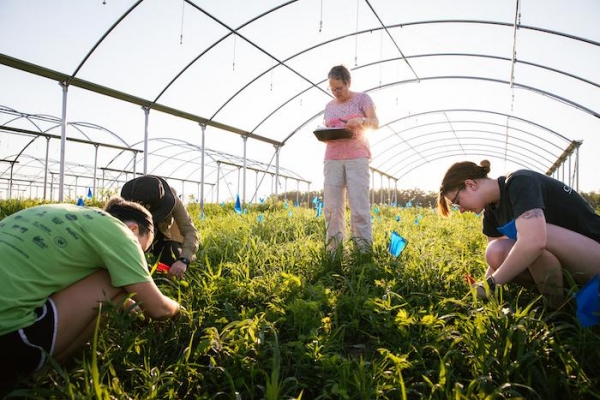A study appearing in Nature Communications based on field and greenhouse experiments at the University of Kansas shows how a boost in agricultural yield comes from planting diverse crops rather than just one plant species: Soil pathogens harmful to plants have a harder time thriving.
“It’s commonly observed that diverse plant communities can be more productive and stable over time,” said corresponding author James Bever, senior scientist with the Kansas Biological Survey & Center for Ecological Research and Foundation Distinguished Professor of Ecology & Evolutionary Biology at KU. “Range lands with numerous species can show increased productivity. But the reason for this has been a bit of a mystery.”
While crop rotation and other farming and gardening practices long have reflected benefits of a mix of plants, the new research puts hard data to one important mechanism underpinning the observation: the numbers of microorganisms in the soil that eat plants.
Read more at: University of Kansas
Co-author Peggy Schultz of the University of Kansas collects data on plots with undergraduate workers. (Photo Credit: KU Marketing)


